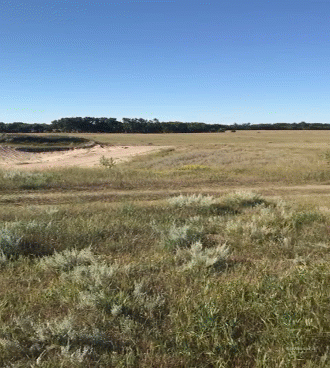The annual plant species selected for this blend will give you your best chance of penetrating and establishing a root system when sowing directly into sod.
Light Blue: Warm Season Plants Dark Blue: Cool Season Plants
plant species in blend
We recommend sowing this blend from mid-May to early June when soil conditions are 8+ degrees and no chance of frost.
Seeding Rate: 50 Ibs/acre
Seed Tag: Learn More
Inoculant Required: Learn More
Best Practices: Learn More
Click Here For Cover Crop Price List & Early Purchase Discounts
Image: Sod Seeded Cover Seedlings
Image: Sod Seeded Cover Early Growth
Image: Sod Seeded Cover Plant/Soil Symbiosis
Sod Seeded COVER
FREQUENTLY ASKED QUESTIONS
See below for the most frequently asked questions regarding the Sod Seeded Cover
Sod Seeded Cover
The value of Warm Season Plant Species
The resiliency of warm season (C4) plants to send deep taproots down in dry conditions is an ideal evolutionary trait which makes these plant species ideal for seeding directly into sod.
“Structural and chemical adaptations give C4 grasses greater growth potential and greater efficiency in use of water, sunlight & nitrogen. They photosynthesize most efficiently when soil and air temperatures are high. C4 grasses can use up to 80% of available sunlight, while C3 grasses can only take advantage of 15 to 30%.”
C4 plants take up on average 108 mg CO2/leaf area/hour
C3 plants max out at 60 mg CO2/leaf area/hour
Sod Seeded Cover
Time-Lapse Video 2022
See below for a time-lapse video of the Sod Seeded Cover. Notice the regrowth.
Sod seeded Cover
Would this blend benefit from a nitrogen application?
Yes. Depending on the type of sod you are sowing into, you may benefit from a nitrogen application. Why? Old hay stands (thick sod residue) have a large amount of carbon stored in root biomass - creating a C:N imbalance. (nutrient tie-up)
To access or break down these minerals, a nitrogen application will speed up the decomposition process. This is known as balancing the C:N ratio.
Wait until the crop is approximately 6 inches tall. If the crop is yellowing, a nitrogen application should be applied at this time.
Recommendation: 25-50 Ibs/acre of Actual Nitrogen
Note: We have seen great results without the application of nitrogen but have also seen crops that have expressed nitrogen deficiencies. Not all sod is the same.
Sod Seeded Cover
Seeding Implement
Although both seeding tools (disc vs. shank) should yield favourable results, with a disc drill we can guarantee uniform seed depth in the harsh conditions that zero till sod seeding presents.
Seeding Implement: Low Disturbance Disc Drill
Seeding Implement: Shank Drill
Sod Seeded Cover
Harvest optionS
Sod Seeded Cover
Farmer Testimonial/timeline
“I wanted to regenerate an overgrazed pasture. I terminated a perennial stand in spring and direct seeded into it. The cows and I were happy with the results.”
~Hayden Johnson. Clearwater, Mb
Image: 55 after seeding
Image: 45 pair turned out on 6 acre paddocks.
Image: Residue
Sod Seeded Cover
Evolution of the blend
The below 3 pictures are from a grower who seeded the 15 species Full Season Cover into sod in 2020. The foundation of the Sod Seeded Cover began here. Over the next two growing seasons, we tested many plant species and their ability to establish in sod.
Image: Seedling Emergence
Image: Vegetation From Sorghum Sudan
Image: Sorghum Sudan & Forage Peas dominate canopy
Sod Seeded Cover
Plant Species in the blend
See below for some general information regarding each plant species in the blend.
Full Season Cover
Apply for Cover Crop Funding
Remember to apply for the OFCAF funding to receive up to $35.00/acre (max. $75,000) for the adoption of multispecies cover crops on your operation. Click here for help getting the process/application started.
Funding will differ across Manitoba, Saskatchewan, & Alberta.
















